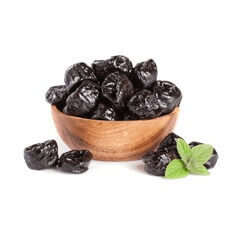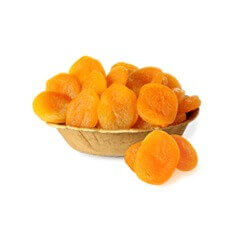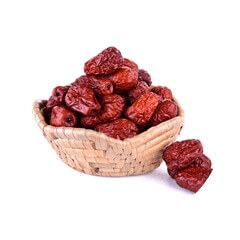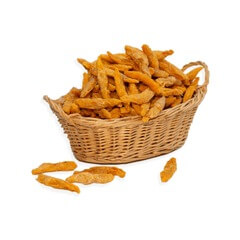Introduction
There has not been much research on the health advantages of dried fruits; nevertheless, there have been considerable breakthroughs in the health benefits of raisins in recent years. Raisins’ polyphenol content and health advantages were recently examined by Williamson and Carughi. The flavonols quercetin and kaempferol, as well as the phenolic acids caftaric and coutaric, were found in high concentrations in raisins, according to the review. Both quercetin and kaempferol are found in raisins as glycosides. Although the bioavailability of these compounds in raisins has not been studied, it has been shown that they are efficiently absorbed from other foods. Some of the health benefits associated with raisin eating may be attributed to these substances (Williamson and Carughi). There is a considerable loss of particular phenolic acids and polyphenols during the drying of grapes to raisins. Total antioxidant capacity and total polyphenol content, on the other hand, remain basically unaltered.
Furthermore, when equal amounts of grapes are served as fresh grapes, raisins, or non-alcoholic wine, similar amounts of specific phenolic acid metabolites are detected in the urine. Thus, raisins appear to be more bioavailable than grapes and white wine in terms of phenolic acids (Murphy). On July 18, 2012, a webcast on the Emerging Health Benefits of Traditional Dried Fruit was offered as a satellite session at the 2012 Institute of Food Technologists (IFT) annual meeting. This webcast was designed to review the most recent research on the health benefits of raisins. The webcast includes research studies on raisins and dental health by Allen Wong, D.D.S., Ed.D; heart disease and glycemic response by James Anderson, MD; satiety and energy intake by Barkha Patel, M.Sc.; and phytonutrient content by Rui Hai Liu, M.D., Ph.D. This supplement contains review articles from the webcast.
Nutritional Content of Raisins
Grape usage, in the form of fresh grapes, raisins, and 100% grape juice, is linked to improved diet quality and nutrient intake. According to the study, Improved Diet Quality and Increased Nutrient Intakes Associated with Grape Product Consumption by U.S. Debra Keast compared the diet quality of grape consumers (GC) to non-grape consumers in “Children and Adults: National Health and Nutrition Examination Survey 2003-2008.” (NGC). When compared to NGC, GC consumed more total and whole fruit while consuming less solid fat and added sugars. Grape consumers consumed numerous important nutrients, including dietary fibre, vitamin A, vitamin C, calcium, and potassium.
Reduced Risk of Dental Caries
Allen Wong, D.D.S., Ed.D., explained in “Raisins and Oral Health” recent research suggests that, contrary to popular belief, raisins may not contribute to dental caries. This study discusses recent research on raisins and the three conditions that lead to the formation of dental caries: low oral pH, food adherence to teeth, and biofilm (bacterial) behavior.
Reduced Risk for Cardiovascular Disease
Raisins have also been demonstrated to enhance blood glucose control and decrease the risk of cardiovascular disease. James Anderson, M.D. reviews previous research on the cardiovascular protective effects of raisins, including their effects on reducing oxidised LDL (Barnes and others) and low-density lipoprotein (LDL) cholesterol in “Raisin Consumption by Humans: Effects on Glycemia and Insulinemia and Cardiovascular Risk Factors” (Puglisi and others). The effect of regular raisins consumption on postprandial glucose levels, HgbA1C, and blood pressure is also discussed (Bays and others)
Satiety and Energy Intake
Barkha Patel, M.Sc. explains how raisins as an after-school snack decrease cumulative food intake in young children when compared to other snacks in “An After-School Snack of Raisins Lowers Cumulative Food Intake in Young Children” (potato chips, cookies). The researchers also discussed how eating raisins before lunch might help you eat fewer calories at the next meal. Researchers believe that eating raisins as a snack may help with appetite and weight control, lowering the risk of obesity (Patel and others).
Phytonutrient Content
In “Dietary Bioactive Compounds and Their Health Implications,” Rui Hai Liu, M.D., Ph.D., discussed current research on phytochemicals in raisins and chronic disease prevention.
The health advantages of raisins may be related to the synergistic impact of phytochemicals found in whole meals, according to evidence.
Crux
To conclude this discussion, human beings should have an intake of Raisins in their diet. Here comes the ADNOOR where you can get high-quality Raisins along with other Nuts. Feel free to visit www.adnoor.ca
2 Comments
Evaluation And health benefits Of Raisins - Adnoor
April 11, 2023[…] Raisins are a famous dried fruit in Canada, where they are eaten as a snack, used as an ingredient in cooking and baking, and as a nutritious addition to morning cereals and trail mixes. While Canada does not manufacture raisins, it is a large importer and consumer of raisins from throughout the world. Raisins are a nutritious and handy food that is commonly accessible in Canada. Raisins are available in Canadian supermarkets and specialized food stores, including the famous Thompson Seedless raisins, as well as various varieties of raisins such as Golden, Sultana, and Flame raisins. […]







Raisins, what are they for? - Adnoor there bebefits.
April 4, 2023[…] are several varieties of raisins available on the market, each with its own distinct flavor and texture. The black or brown sultana, […]